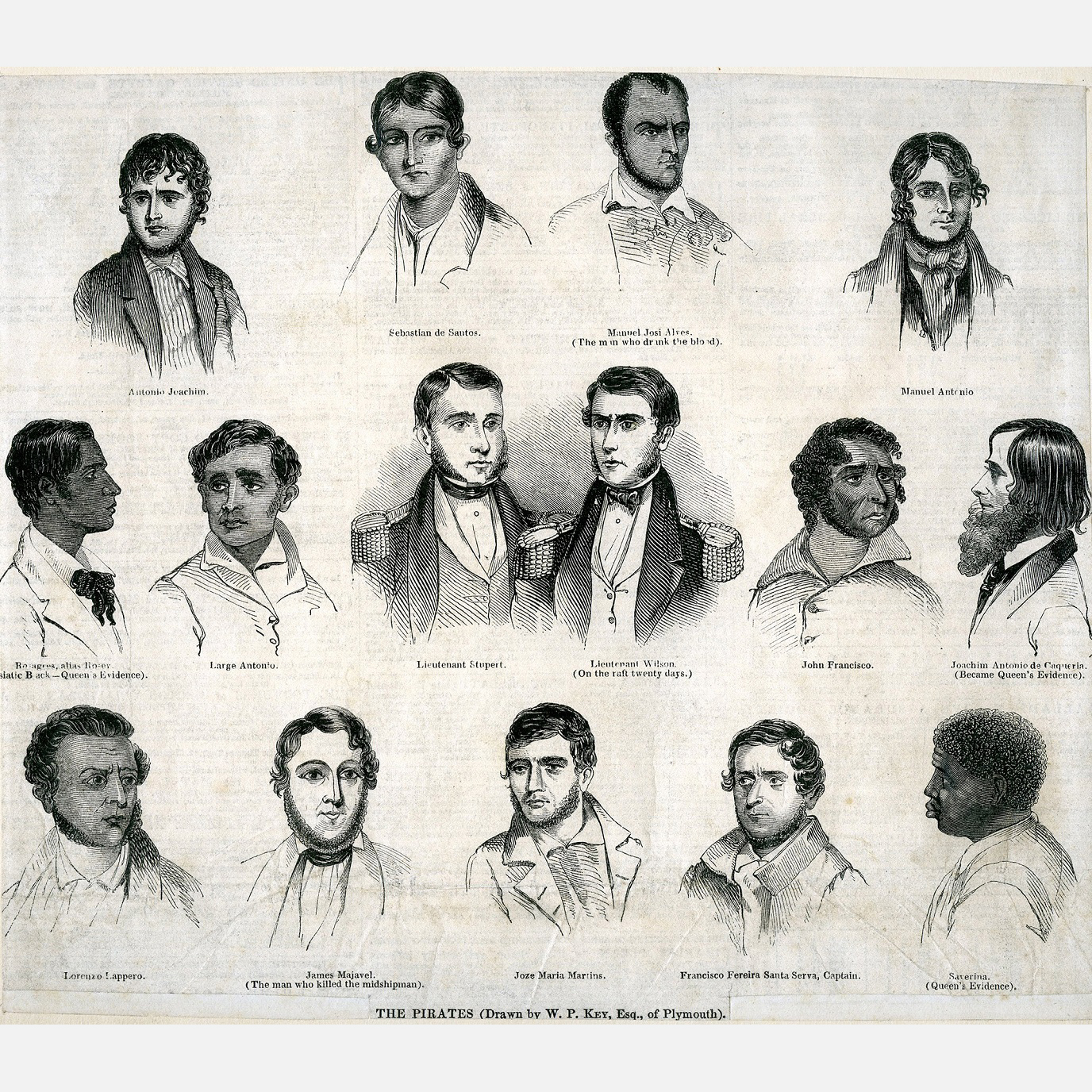Archive insight: Plymouth and the tale of a Brazilian pirate ship
2 October 2022
The Box’s archives are home to many forgotten stories from Plymouth’s past. Here we explore the events surrounding Brazilian pirate slavers who were captured by the Royal Navy and transported to Plymouth for trial. This story is recorded in documents from our archives, some of which are on display in the Active Archives gallery.
In response to the abolition of slavery in Britain and its colonies, the Royal Navy established the West Africa Squadron in 1808 to patrol the West Coast of Africa and intercept slave ships that were perpetuating the Atlantic Slave Trade.
On 27 February 1845, HMS Wasp was patrolling the west coast of Africa just off Lagos, Nigeria. During its patrol, HMS Wasp encountered a ship called the Felicidade flying a Brazilian flag and which the commanding officer of HMS Wasp, Lieutenant Stupart, suspected of being fitted for transporting slaves. HMS Wasp intercepted the Felicidade and detained the crew. Lt. Stupart was correct – the Felicidade had been fitted for slaves, however, there were none on board at the time.
A day later, another ship, the Echo, also flying a Brazilian flag and likely fitted for slaves was sighted by HMS Wasp and successfully captured. Upon inspection, it was discovered that the Echo had 434 slaves on board who had been starved for over 48 hours. Lt. Stupart moved nine members of the Echo’s crew to the Felicidade to join the imprisoned crew. Midshipman Thomas Palmer, who was 16 at the time, and nine other members of HMS Wasp’s crew were placed in charge of the Felicidade and the prisoners, whilst Lt. Stupart remained aboard the Echo to feed the 434 slaves.
While he was aboard the Echo feeding the slaves, the imprisoned crews of the Brazilian ships conspired to kill midshipman Palmer and the other British seamen so they could make their escape. Captain Serva of the Echo ordered eight members of his own crew and Janese Majaval, the Felicidade’s cook, to storm the deck. Majaval stabbed midshipman Palmer whilst the other prisoners killed the rest of the British seamen and threw their bodies overboard.

Lt. Stupart realised something was amiss when cannon fire was heard coming from above decks. The Felicidade fired on the Echo twice during the prisoners escape from British custody. However, it was soon recaptured by another British ship, HMS Star. The prisoners: eight Brazilians and two Spaniards (pictured above) were brought to Plymouth for the first stage of their criminal trials.
In July 1845, they were examined at Plymouth Guildhall and represented by Sir Robert Collier, an up-and-coming lawyer who went on to become an MP for Plymouth. The men were charged with wilful murder on the high seas. Seven of them were found guilty and sentenced to death.
To explore more stories like this from our archive please visit the Active Archives gallery on the first floor of The Box. Opening hours are 10am-5pm Tuesday to Sunday and selected Bank Holidays. Admission is free and there's no need to book.
Selina Trout, Sales and Information Assistant
Header image: 'Chase of the Pirate Lugger Will Watch' by Thomas Buttersworth (1768–1830). Prints of this painting are available to buy online from ArtUK.